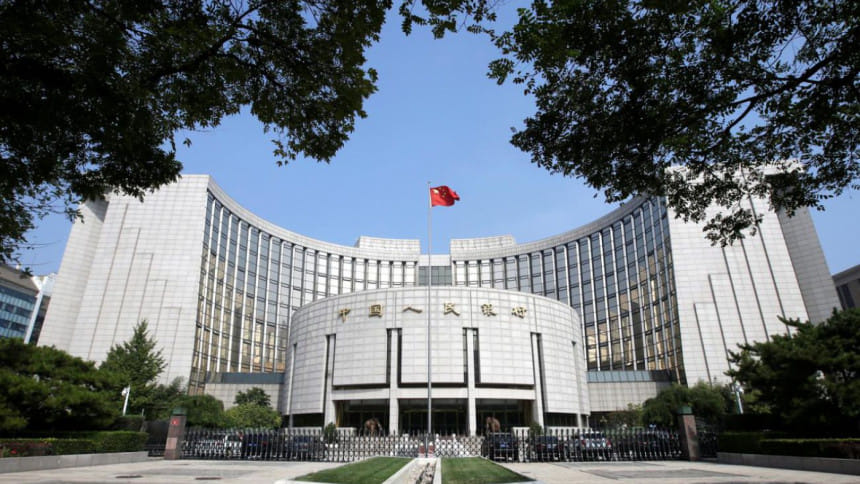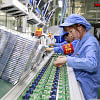China considers $142 bn injection for state banks: report

Chinese leaders are considering pumping more than $140 billion into the country's large state-run banks in the first such move to support the flagging economy since the global financial crisis, a report said Thursday.
Beijing has this week announced some of the strongest measures in years to boost activity in the world's second-largest economy, which has yet to achieve a full recovery from the pandemic.
Among the woes facing policymakers are a prolonged debt crisis in the property sector, sluggish domestic consumption, and high youth unemployment.
Beijing is now considering injecting as much 1 trillion yuan ($142 billion) into large state-run banks, Bloomberg News reported Thursday, citing sources familiar with the matter.
The measure -- aimed at giving the banks more room to lend to businesses -- will be implemented mainly through the issuance of "new special sovereign bonds", the report said, adding that the details have not yet been finalised.
China has not made major capital injections of this kind into the country's top banks since the 2008 financial crisis, it said.
The slew of moves announced this week, which include key rate cuts and policies intended to encourage home purchases, have been welcomed by investors as stocks in Shanghai and Hong Kong rally this week.
But analysts warn that more fiscal stimulus is needed to get the economy back up to full speed, as leaders continue to seek ways to achieve this year's official growth target of five percent year-on-year.
Recent economic data has been disappointing, with second-quarter growth coming in lower than expectations at 4.7 percent.
Youth unemployment climbed in August to 18.8 percent -- its highest level this year -- according to official figures released last week.
This week's stimulus measures represent a "shift towards a more aggressive easing stance, given the sustained weakness in domestic growth", said Chaoping Zhu, global market strategist at JP Morgan Asset Management.
"The sense of urgency may convince investors that more policy support is on its way," added Zhu.

 For all latest news, follow The Daily Star's Google News channel.
For all latest news, follow The Daily Star's Google News channel. 








Comments